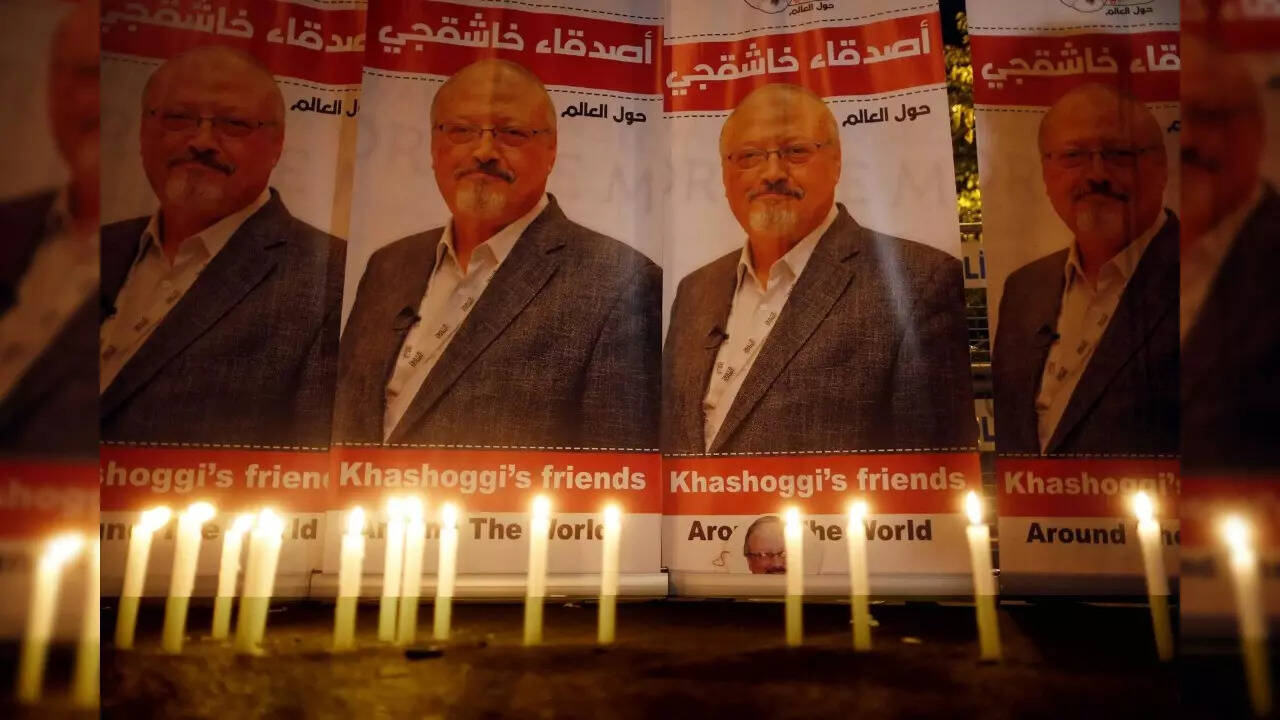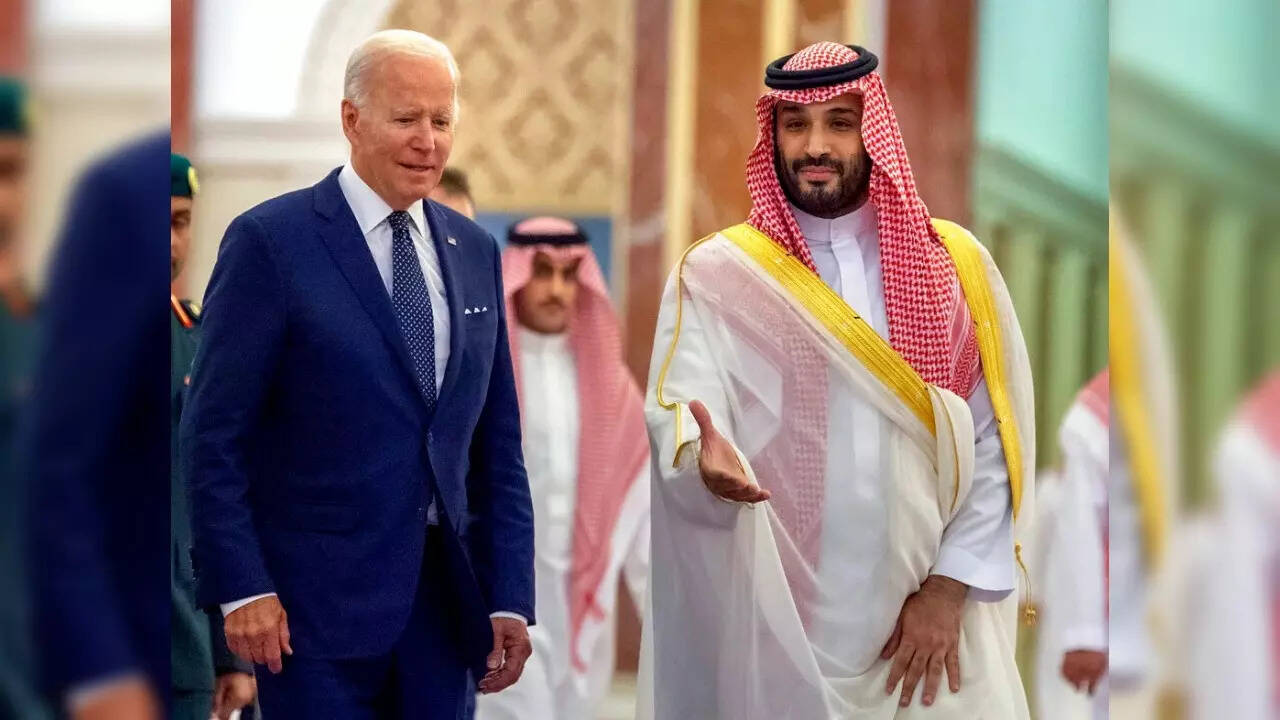Crown Prince Mohammed bin Salman named prime minister of Saudi Arabia : What this means for the kingdom
Saudi Arabia’s Crown Prince Mohammed bin Salman has been named the kingdom's prime minister, as per a royal decree. The role of the Prime Minister in Saudi has been typically held by the ruler all along – in this case, the Crown Prince's father, the 86-year-old King Salman bin Abdulaziz. However, the transfer of power has been steady in Saudi Arabia since Mohammed bin Salman was named heir to the throne in 2017.
Saudi Arabia’s Crown Prince Mohammed bin Salman has been named the country’s prime minister, according to a royal decree published by the official Saudi Press Agency. This seems to have been a part of the cabinet reshuffle ordered by his father – King Salman bin Abdulaziz. Besides making Prince Mohammed bin Salman — also the King’s heir — as the kingdom's Prime Minister, King Salman has also named his second son Prince Khalid as Defence Minister, a royal decree further said.
The Crown Prince, more popularly known by his initials — MBS, was the Defence Minister until now.
The role of the Prime Minister in Saudi Arabia has been typically held by the ruler all along. However, the transfer of power has been steady in Saudi Arabia since Mohammed bin Salman was named heir to the throne in 2017. He has already held and been in charge of the kingdom’s major portfolios including the economy, defence, oil, and internal security.
MBS’s father – the 86-year-old monarch – was hospitalised for medical examinations and treatments in May 2022. As per the latest decree announcing the 37-year-old crown prince’s prime ministership, the king remains the head of state and will continue to chair cabinet meetings he attends.
MBS’s Vision for Saudi Arabia
Even before he was named the heir, Crown Prince Mohammed bin Salman has been taking an active interest in running the kingdom and has drastically, and as some would say radically, changed the face and the international perception of Saudi Arabia. As the kingdom’s Defence Minister, MBS led Operation Decisive Storm against Yemen’s Iran-backed Houthi rebels – in March 2015. The Operation was an intervention in the Yemeni Civil War, which came as a response to a plea for military support by Yemen president Abdrabbuh Mansur Hadi after he was ousted by the Houthi movement. Former US President Obama had "authorized the provision of logistical and intelligence support" to the Saudi-led military coalition and had established "a Joint Planning Cell with Saudi Arabia to coordinate U.S. military and intelligence support" to the coalition, according to a White House communique.
MBS has also been aggressive in driving the Saudi foreign policy to counter the expanding influence of Iran — a country which has been a regional and a political rival.
While this was a notable military move, the Prince has also been looking at the economic development of the kingdom. He introduced Vision 2030 in April 2016, which envisaged making the kingdom the heart of the Arab and Islamic world, an investment powerhouse, and a hub that connects three continents. The ambitious plan also seeks to privatise the economy and diversify, making the kingdom’s economy less reliant on oil. In terms of keeping up with the digital space, the Vision 2030 document also seeks to establish an e-government system by 2030.
In line with Vision 2030, MBS announced the kingdom’s plan of the record-setting 120km-long skyscraper called the Mirror Line in the Neom — MBS’s $500 billion audacious flagship megaproject.
Besides these, he has also opened up the kingdom to keep up with the modern world, passing decrees that allow women to drive and curbing the authoritative power that the Muslim clerics held over Saudi society.
But not all is shiny in the Prince’s regime
For all his reforms, however, MBS is known to be ruthless and autocratic. From a massive crackdown on dissenters (actual and perceived) and his rivals, MBS has jailed human rights activists, women’s rights activists, businessmen and even royals who have opposed or questioned his moves.Jamal Khashoggi’s murder and MBS’s alleged role
One such dissident was Saudi journalist Jamal Ahmad Khashoggi who was sharply critical of the King and MBS’s autocracy. Khashoggi, who was working for Washington Post, was assassinated at the Saudi consulate in Istanbul on October 2, 2018. The allegation is that he was tortured and beheaded by agents of the Saudi government, allegedly at the behest of Crown Prince Mohammed bin Salman. It is said that the journalist’s dismembered body never left the Saudi consulate.

Photo : AP
According to his employer the Washington Post, Khashoggi was living in the United States on an “O” visa, believed to have been applying for a legal permanent residence (green card) in the US. Three of Khashoggi’s children are US citizens.
While seen as an ally in countering the Iran influence, the US soon turned against the Saudi kingdom, particularly against MBS. Once hailed as a reformer in the regressive regime, Crown Prince Mohammed bin Salman became a global pariah overnight in 2018 after Khashoggi’s gruesome murder.
Khashoggi’s fiancée Hatice Cengiz had brought a civil case to the US courts and the Biden administration has a court-ordered deadline looming over it next week (October 3, 2022) to weigh in on whether MBS should be protected by sovereign immunity.
What Prime Ministership means for MBS in the Khashoggi case
Sovereign immunity is usually granted to a world leader, such as a prime minister or a king. Announcing MBS as the prime minister at this point in time seems a calculated move, considering that the announcement and the position do little to change the balance of power in the kingdom, or add to the Prince’s already all-powerful stature in the kingdom, where he is already seen as a de facto ruler. However, it does grant him sovereign immunity and shield him from the potentially damaging lawsuit in the US.
Photo : AP
It could also be a face-saver for Biden who has been facing criticism for going back on his campaign promise to turn Saudi Arabia into a “pariah”. He travelled to Saudi Arabia to meet the heir apparent MBS during the POTUS’s first trip to Riyadh since entering the White House.
Even before he embarked on his trip, Biden acknowledged in an op-ed for The Washington Post “I know that there are many who disagree with my decision to travel to Saudi Arabia.” The consequences and imagery at home are turning bad for Biden even as MBS seeks to rebuild bilateral tumultuous relations with Washington over the Jamal Khashoggi killing.
While Saudi is seeing immense economic and military reforms under MBS, human rights seem to be a question forever deluding the Saudi monarchy.
Trending:
End of Article
Subscribe to our daily Newsletter!





Related News





Tech Layoffs 2024: Experts Explain Why The Tech Industry Is Most Affected

Who Built NASA's James Webb Space Telescope?

Explained: What Is 60% Kannada Rule That Saw Violent Protests In Bengaluru

Disease X Versus COVID-19: What Are Similarities And Difference Between Two

Are We Prepared to Deal with Disease X?









